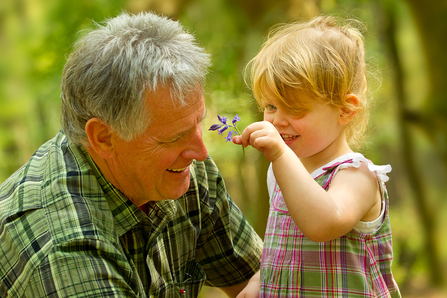Simply leaving a legacy to your local Trust is one of the best things you can do for nature. And what better way both to leave something lasting locally and to give back something for all the simple pleasure and, yes, spiritual wealth that you have gained from being lucky enough to have an everyday contact with nature.
Yet somehow making a will is one of those things that can never seem to be a priority. Maybe there's a little element of phobia, something to do with just going to a solicitor, even thinking about the inevitable. I was forced to make a will when I got my first mortgage, but I never got around to updating it, even though I witnessed first-hand the huge financial and emotional liabilities caused by that kind of neglect. OK, it has taken a time to make updating mine a priority (and a near miss on my bicycle), but I have done the deed now, and it was relatively painless.
I took the decision to leave legacies to the Avon Wildlife Trust and to the trust of my childhood home county of Devon, in the knowledge of the real value of such gifts. Having been a trustee of Avon Wildlife Trust, I know first-hand how legacies make all the difference. At the best of times, even with the input of a huge number of dedicated volunteers, the trust can struggle to balance the books. To do the things it desperately wants to, whether purchase new reserves, manage existing ones or develop the many projects it is working on, legacies make all the difference, and honestly, a legacy can often be the miracle at the end of a difficult financial year.


